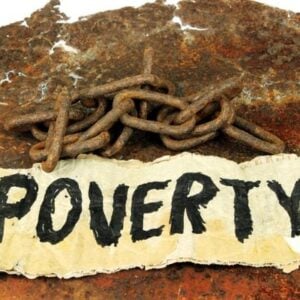Pakistan’s long-term progress in reducing poverty has reversed in recent years, with the national poverty rate rising to 25.3 percent in 2023-24 after steadily declining for nearly two decades. According to the World Bank’s latest assessment, Reclaiming Momentum Towards Prosperity: Pakistan’s Poverty, Equity and Resilience Assessment, this marks a significant setback after poverty had fallen from 64.3 percent in 2001-02 to 21.9 percent in 2018-19. The report highlights that the gains achieved over the years have been eroded by economic shocks, weak policy responses, and natural disasters.
The World Bank identifies COVID-19, the 2022 floods, high inflation, and faltering policies as major drivers behind the recent increase in poverty. Christina Wieser, a lead economist for the report, emphasized the need for bold, people-centered reforms to strengthen resilience, expand access to quality services, protect households from shocks, and create better employment opportunities, particularly for the bottom 40 percent of the population.
The Bank also noted a broader measure of poverty using its global upper-middle-income threshold of $4.20 a day, under which approximately 44.7 percent of Pakistanis live, highlighting the scale of vulnerability beyond the national poverty line. Bolormaa Amgaabazar, the World Bank’s country director for Pakistan, stressed that while these figures are based on different benchmarks, both underscore the urgency of protecting previous gains and accelerating reforms.
Over the past two decades, much of Pakistan’s poverty reduction was driven by households moving from farm work into low-paying service jobs, but limited structural transformation has constrained broader diversification, job creation, and income growth. The World Bank outlined four pathways to restore progress: investing in human capital and local services, strengthening household resilience through social safety nets, adopting progressive fiscal measures such as targeted spending in place of subsidies, and improving data systems to guide policy decisions.
Since joining the World Bank in 1950, Pakistan has received over $48.3 billion in assistance. The Bank’s current portfolio includes 54 projects with total commitments of $15.7 billion, aimed at supporting sustainable development, social protection, and economic resilience.







